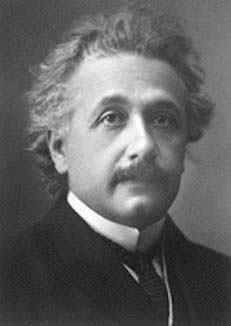Without maybe realising, we think about intelligence as being the ability to perform changes to one's environment. We know dolphins have relatively sophisticated communication, and we refer to them as intelligent. However, they are excellent in their given aquatic environment without trying to change it, or colonise other places (land, air, space; yes, it sounds silly).
This distinction is important because changing one's environment has an impact on the selection pressures themselves, and hence natural selection and evolution. How could inability to breathe underwater be selected against if someone has an oxygen tank to breathe out of? How could inability to find a suitable nesting spot be selected against if a bird can build its own nest? The more a natural environment is manipulated into an artificial environment by organisms, the less its evolution is left to chance, as inheritance shifts from strictly molecular level and DNA, to other levels (cognition, artificial storage and memory, learning). Essentially, natural selection acting on a genetic level (reproduction, genes passed on) interplays with artificial forms of selection which act on the other levels of inheritance.
In a sense, it is possible to use alternative methods of inheritance such as learning, to control an unlimited number of people's minds. Genetic make-up is no longer enough to guarantee certain advantageous traits in an artificial environment. Children are born without knowing a certain language. It takes only 1 Albert Einstein to spread insightful ideas to countless others, countless other who may use that knowledge to one day change the universe. The likelihood of that happening due to a certain group of people at any given point in time is a lot higher than it happening due to Einstein's imaginary children.
This distinction is important because changing one's environment has an impact on the selection pressures themselves, and hence natural selection and evolution. How could inability to breathe underwater be selected against if someone has an oxygen tank to breathe out of? How could inability to find a suitable nesting spot be selected against if a bird can build its own nest? The more a natural environment is manipulated into an artificial environment by organisms, the less its evolution is left to chance, as inheritance shifts from strictly molecular level and DNA, to other levels (cognition, artificial storage and memory, learning). Essentially, natural selection acting on a genetic level (reproduction, genes passed on) interplays with artificial forms of selection which act on the other levels of inheritance.
In a sense, it is possible to use alternative methods of inheritance such as learning, to control an unlimited number of people's minds. Genetic make-up is no longer enough to guarantee certain advantageous traits in an artificial environment. Children are born without knowing a certain language. It takes only 1 Albert Einstein to spread insightful ideas to countless others, countless other who may use that knowledge to one day change the universe. The likelihood of that happening due to a certain group of people at any given point in time is a lot higher than it happening due to Einstein's imaginary children.


Comments
Post a Comment
Comment...